Premlal’s Heart:
God’s Temple or Devil’s Workshop?
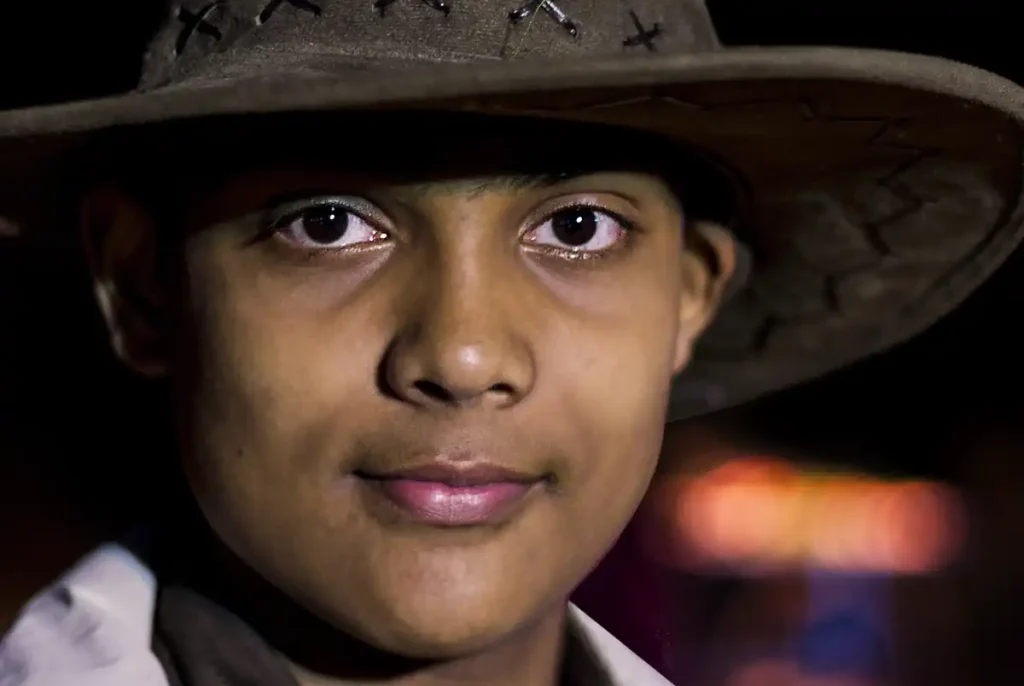
The condition of every human’s life is described here metaphorically through a series of pictures. These are like mirrors that reveal your true self.*
Thirteen-year-old Premlal sat outside his home in a quiet Mumbai neighborhood, tapping away on his phone. The sun hung low, casting a golden hue on the street, when a man passed by—someone unfamiliar yet oddly friendly.
The stranger paused, offering a warm smile. “Premlal,” he said, “have you ever looked inside your heart?”
Premlal blinked. “No, sir. But… how do you know my name?”
The man chuckled gently. “Don’t worry. Everyone around here knows you. Come with me—I want to show you something.”
Curious, Premlal stood and followed. They strolled down the lane and into a nearby park, settling on a weathered wooden bench beneath a gulmohar tree. The man reached into a small pouch and pulled out a plain paper envelope.
From it, he slid out a peculiar picture. It was a detailed drawing of a human heart—not just the organ, but something more artistic, almost alive, with colors swirling through it.
“Look closely,” the man said, his voice soft. “This is what I meant—looking inside your heart.”
As Premlal studied the image, his friends spotted him from afar and jogged over, curious about the stranger. They gathered around, one on each side, peering at the picture with wide eyes.
The man welcomed them with a smile, his calm presence making them feel at ease. None of them spoke, but something about the picture held their attention—as if it was showing each of them something different.
The man’s voice was calm, yet it carried a weight that made Premlal lean in, listening more closely. His friends, still standing by the bench, grew quiet, caught in the gentle gravity of the man’s words.
“Premlal,” the man continued, holding up the picture with reverence, “God sees all. Not just our actions, but the very thoughts that rise and fall in our minds. If we could see ourselves through His eyes—truly see—we would feel deeply ashamed. Not because He wants to shame us, but because we would finally understand how far we are from what we were meant to be.”
“This picture shows the heart of any man or woman. God created us to be perfect like Him. But all of us have broken God’s laws. We are guilty sinners. Sinners are controlled by their own evil desires and cravings. Evil is not just a bad influence or ‘negative energy.’ There is an evil person – a spiritual being – the Bible refers to as the devil. This is a true picture of the heart as God sees it.”
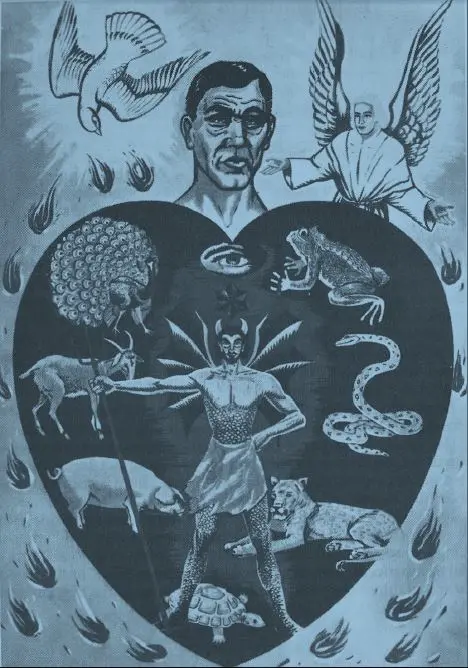
He pointed to the center of the picture. “This,” he said, “is the eye of God. Nothing escapes it. No lie whispered in the dark, no jealousy hidden behind a smile. Even the thoughts we hide from ourselves—He knows them.”
There was a pause. The garden around them seemed to fall silent, as if listening too.
“God has placed a conscience in every person,” he said. “It speaks to us when we do wrong. Sometimes it’s a quiet voice, sometimes a loud cry. But if we keep ignoring it, the voice fades. A dead conscience no longer warns us. And then—people do whatever they want, no matter how wicked, without flinching.”
Premlal looked down. The man turned the picture slightly, revealing a vibrant peacock in one corner.
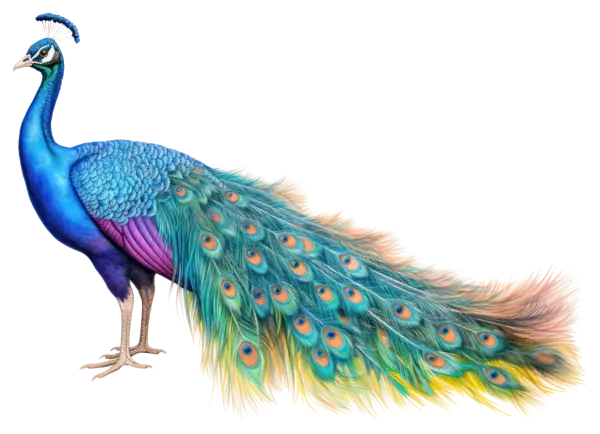
“This peacock,” he said, “symbolizes pride. Look at how it displays its feathers—glorious, but vain. Pride is like that. People boast about their beauty, wealth, talents, or knowledge, hoping others will admire them—or feel small. But pride turns the heart hard. God resists the proud, Premlal. He stands against them.”
He glanced at the boy gently. “Tell me, do you ever feel glad when someone else fails? Or think, even quietly, that you’re better than someone else? That’s the seed of pride.”
Premlal said nothing, but his fingers tightened slightly around the edge of the bench.

The man moved on, pointing now to a strong, horned ram. “This ram stands for stubbornness. Some people are so sure of themselves, they refuse to listen—even when they’re clearly wrong. They argue, defend, and shut their ears. Correction becomes impossible. Even God finds it difficult to reach a heart sealed by pride and stubbornness.”
Next came the image of a pig, drawn greedily devouring from a trough.

“Here is gluttony,” he said. “Yes, we all need food—it’s a gift from God. But some people live only to eat. Food becomes their comfort, their joy, their god. And gluttony isn’t just about food. It’s about overindulgence. Always craving more, never satisfied. Such hunger turns the soul dull.”
The toad came next—its form shadowy and unsettling.

“This toad,” he said solemnly, “represents impurity. It may seem harmless at first—dirty jokes, foul language, an inappropriate scene in a show. But slowly, impurity seeps into the heart. And what fills the heart, shapes the life. A mind filled with filth cannot live cleanly.”
He looked directly at Premlal now. “God made our bodies beautiful, holy—every part, every function, with purpose. But we twist His creation. We make jokes out of what was meant to be honored. We use our mouths, our thoughts, even our hands to dishonor what is sacred.”
The boy felt a strange stillness inside him, as if something deep was being stirred.
The man’s voice grew softer, almost sorrowful. “God is holy, Premlal. Completely, perfectly pure. He cannot ignore sin—dirty thoughts, filthy words, deceitful acts. Not because He is cruel, but because He is just. He longs to cleanse us—but only if we are willing.”
Finally, the man pointed to a snake slithering at the edge of the picture—its eyes narrow, its tongue forked.

“This snake,” he said, “is the symbol of lies and deceit. We live in a world where people lie without reason. They pretend to be one thing while being another. They wear masks and play roles. But God sees behind the masks. And He hates deception.”
The man looked around at the boys, letting his words settle in.
“Lies are everywhere,” he said quietly. “And most people cling to them. Why? Because they fear the truth. The truth may reveal they were wrong all along. And that terrifies them.”
He turned back to Premlal. “But God loves those who search for truth. Even when it’s painful. Even when it breaks their pride. If you seek the truth with all your heart, Premlal—you will find it. And the truth… will set you free.”
The man’s finger moved once more over the picture, resting on the fierce form of a leopard, its eyes sharp and its teeth bared.

“This leopard,” he said, his voice low but steady, “symbolizes anger, violence, and the hunger for revenge.”
He let the weight of the words linger before continuing. “We live in a world that glorifies violence. Movies, stories, even video games—so many celebrate vengeance, as if it were something noble. The quiet, the gentle, the forgiving—are often mocked as weak. And so, our children grow up believing that hitting back is strength, that bullying others proves power.”
He looked directly at Premlal, not accusing, just asking. “Have you ever burned with anger, Premlal? Wanted to hurt someone who hurt you?”
The boy nodded slowly, not speaking.
“God,” the man said softly, “is not a God of rage, but of peace. He offers His peace to anyone who will receive it. And with it, He gives the strength to forgive—even those who don’t deserve it. Especially them.”
He moved his hand again, this time to a slow-moving tortoise drawn with drooping eyes and a heavy shell.

“This tortoise,” he said, “represents laziness. Sluggishness of the soul. Have you ever struggled to rise from bed? To finish what you’ve started? Laziness is more than sleepiness—it’s the habit of delay, of always waiting for ‘tomorrow.’ But tomorrow never comes for the lazy.”
He paused, letting the words settle like seeds.
“Such people avoid responsibility. They borrow, but do not repay. They consume, but do not contribute. And if too many people in a nation live this way, the nation begins to crumble—from within.”
He turned the picture back toward himself, eyes scanning its intricate symbols. “The Bible warns us of many sins. Not just the obvious ones like theft or murder. But also the ones people overlook—jealousy, selfish ambition, drunkenness, lust, impurity, rebellion, greed, idolatry.”
His tone grew firmer now, not harsh, but solemn. “There are people who live their lives feeding on these sins. They open their hearts to evil and close their ears to truth. And in doing so, they welcome darkness.”

The man’s face darkened slightly with sorrow. “Do you know who leads them into this? It’s the devil. Once, he was a glorious angel. But he chose pride over obedience. He rebelled—and was cast out of God’s presence.”
He looked up, his gaze steady. “Now, those same evil spirits that rebelled are among us. They whisper lies. They twist desires. They pull people—men, women, even children—away from God.”
Then, a pause. A quiet moment where only the rustling leaves in the garden could be heard.
“The devil doesn’t mind if people are religious,” he said at last. “What he fears is people finding the truth—the truth about the God who created them and loves them. That truth is his greatest threat.”
Premlal sat silently, his young face clouded with thought. Something within him was stirred, as if a light had been turned on in a room he didn’t know existed.
Then came the question—gentle, but direct.
“Premlal,” the man asked, “who controls your heart? Do you see any of these sins in yourself? Is your heart ruled by God… or by something else?”
Premlal swallowed. “I… I think my heart is full of sin,” he said quietly. “I do pray to God, but… how can He listen when I’m this impure? How can my heart ever be clean?”
The man smiled—not with amusement, but with compassion.

“Premlal, it is because your heart is impure that God is reaching out to you now. His Spirit—the Holy Spirit—is speaking to you, gently, like a dove. That quiet voice inside you, making you aware of your sins… that is a gift. It is the beginning of repentance.”
He held the picture up once more, the symbols glimmering under the afternoon light.
“God cannot dwell in a heart filled with darkness. But He stands at the door. He shines His light into your soul, showing you what’s truly there—not to condemn you, but to cleanse you.”
He placed a hand gently over his chest. “Premlal, your conscience is like a mirror. It reflects your guilt. But God sees even deeper than your conscience. And if even your own heart tells you that you’re guilty, how much more will a holy God see?”
Then, slowly, his voice became a quiet warning.
“God is love, yes. But He is also just. He will not ignore sin forever. He will judge. And all who hold on to their sin will face that judgment. But… those who come to Him, humble and honest—He will forgive. He will make them clean.”
“What is the punishment for sin?” Premlal asked quietly, his eyes still fixed on the picture.
The man’s expression grew solemn. “Death,” he replied. “Not just physical death—the ending of breath and body—but spiritual death. Separation from God. Eternal separation. All who live and die in sin will be cast away from God’s presence into a place of torment. A place where there is no hope, no light, no end. This is hell.”
The words landed like a stone in Premlal’s chest.
“After death, every one of us must stand before God’s judgment seat,” the man continued. “He will judge us according to everything we’ve ever done, every word we’ve spoken, even every secret thought we’ve harbored. Nothing will be hidden. And there will be no second chances—no return to make things right.”
Premlal sat still, troubled. But the man’s voice softened.
“That is the bad news. But, Premlal, there is good news—very good news. The best news this world has ever heard: God loves us. Despite everything, He loves us. That’s why He sent His Son, Jesus, to save humanity from sin and death.”
“Do you know about Jesus?” he asked gently.
Premlal shook his head. “No,” he whispered. “I don’t know Him. Who is He?”
The man smiled with a tender reverence. “Over two thousand years ago, Jesus was born—not in a palace, but in a cowshed. He came into the world in poverty and humility. Though angels sang at His birth, and wise men traveled far to honor Him, most of the world didn’t know who He truly was. Today, we celebrate His birth as Christmas.”
“This Jesus,” he continued, “performed miracles beyond human comprehension. He healed the sick without medicine, gave sight to the blind, calmed storms, even raised the dead. He called God His Father and said He was the Son of God. And His life proved it.”
Premlal listened intently, the weight of the story drawing him in.
“The Bible tells us of His life—written by those who walked with Him. Jesus never sinned. Not once. Do you know why God sent Him?”
Premlal shook his head again, slowly.
“God sent Jesus to take our place. The punishment we deserve, He took upon Himself. Jesus was nailed to a cross. He suffered. He bled. He died—but not for His own sins. He had none. He died for ours.”
The man’s voice lifted with quiet hope. “And on the third day, He rose from the grave. He conquered death. He lives even now—risen, ascended, crowned King of kings. He rules the universe from heaven.”
“He is calling out to people from every nation, every language, every walk of life:
Come to me, all of you who labor and are burdened, and I will give you rest. Take my yoke on you and learn from me, for I am gentle and humble in heart, and you will find rest for your souls. For my yoke is easy to carry and my burden is light.’”
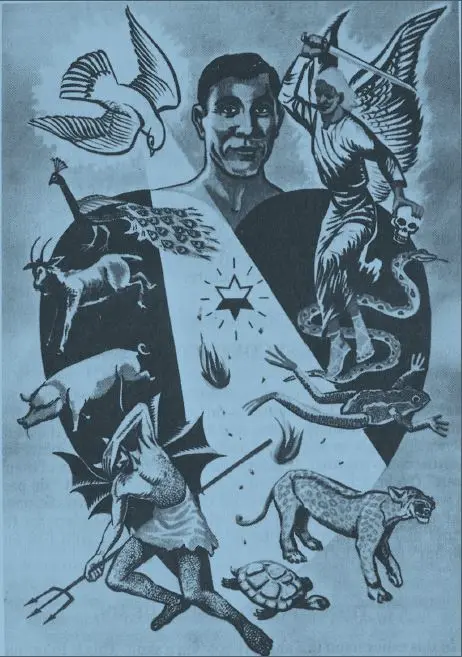
“Those who believe in Jesus are forgiven by God. But belief must be paired with repentance—true repentance. We must confess our sins. We must ask for forgiveness in the name of Jesus.”
He held up another picture—this one glowing with light and peace.
“This is the second picture,” he said. “It shows a heart made clean. A heart forgiven and filled with the Holy Spirit. The Bible says:
‘…the blood of Jesus His Son cleanses us from all sin.’
*‘If we say we have no sin, we deceive ourselves. But if we confess our sins, He is faithful and just to forgive us our sins and to cleanse us from all unrighteousness.’”
“There are people who claim they are without sin. God cannot forgive those who pretend they don’t need forgiveness. But those who humble themselves—He welcomes them. He washes them clean.”
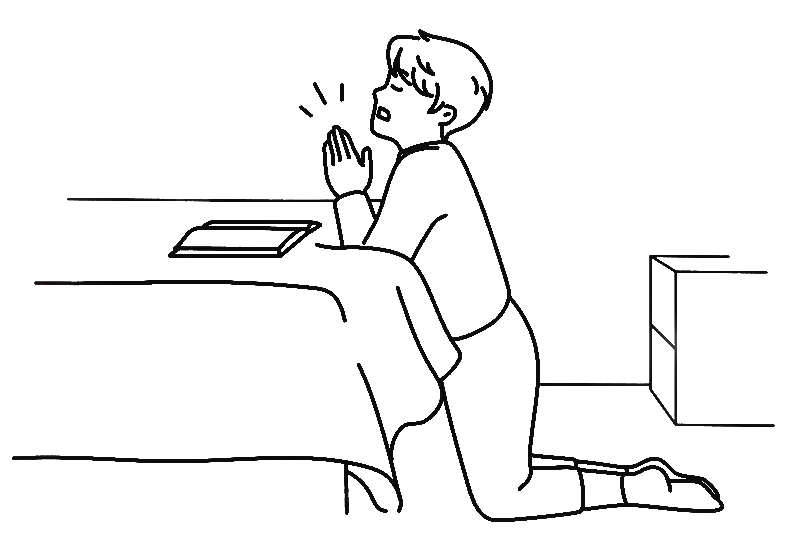
“God is Spirit. He is not confined to any place of worship. You don’t need to see Him to speak to Him. Close your eyes, quiet your heart, and talk to Him. He will hear you.”
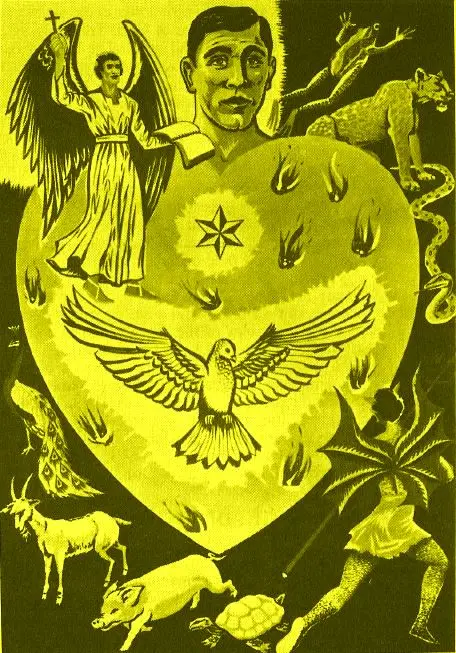
“And when you sincerely turn from your sin,” the man said, “God’s Holy Spirit will come to live in your heart. He will make you His child. Your life will begin again—with peace, with purpose, with a hunger to know Him.”
“The Bible, God’s Word, will become your daily bread. As you read it, you’ll come to know God more deeply. And when you meet others who follow Jesus, you’ll find a family that walks this journey with you.”
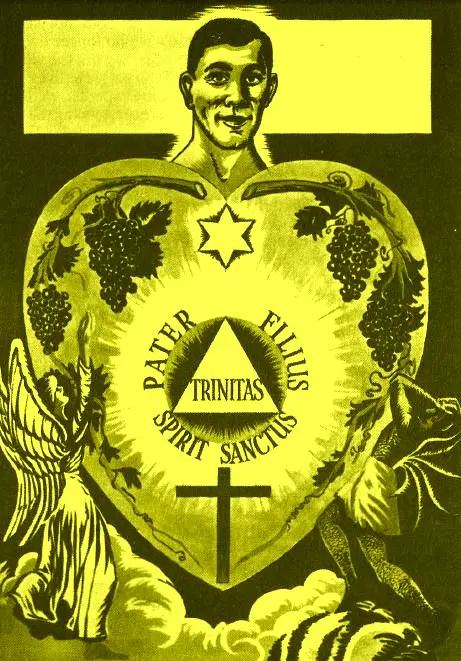
“You must then live to please God. Follow Jesus’ teachings. When you do, God will dwell within you. You will become His temple—not made of bricks, but of faith and obedience.”
The man’s voice dropped to a whisper, as if revealing a sacred truth. “The God who created the universe does not live in buildings. He lives in the hearts of those who love and obey Him. Jesus said, ‘If anyone loves me, he will keep my word. My Father will love him, and we will come to him and make our home with him.’”
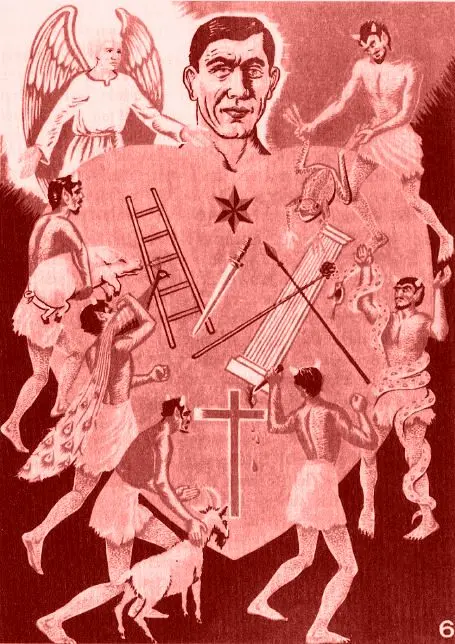
He turned the page to another picture. “But even then, the heart is not free from struggle. We live in a world full of sin. Temptations come from all sides—through friends, media, even our own desires. Evil spirits try to drag us back into darkness.”
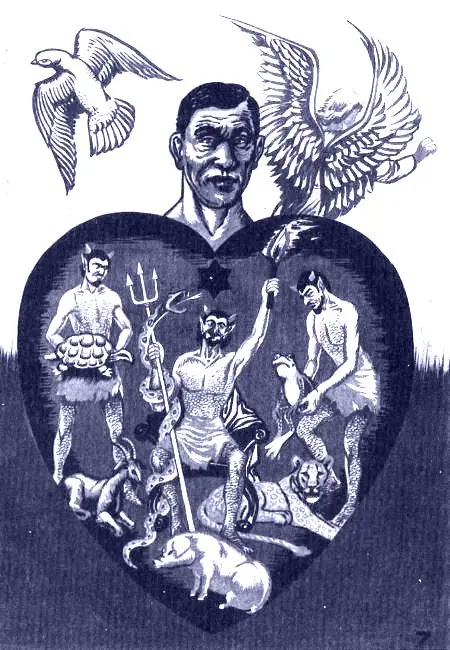
He paused. “Even Jesus was tempted. But He never sinned. And through Him, we too can overcome.”
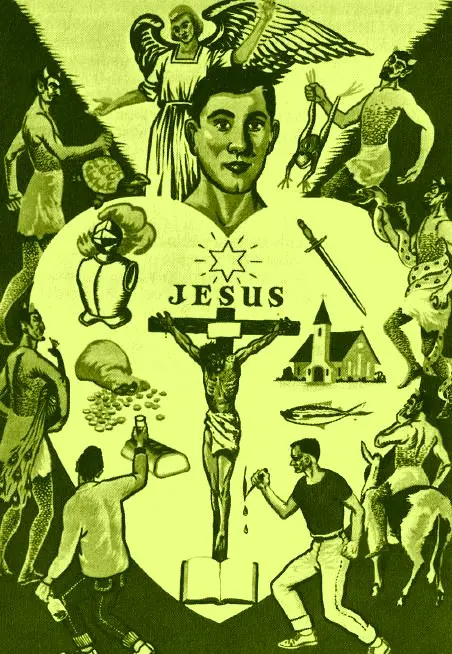
He showed a picture of a heart surrounded by temptation—but standing firm, filled with light. “This is the heart that lives in daily victory. The one who belongs to Jesus no longer lives for sin. They live for God.”
“Jesus taught His followers to be baptized—to be dipped in water and raised again. This is a symbol. It means dying to sin and rising to a new life in Christ. And through this, they walk in God’s presence, every day.”
The final picture was of a soul ascending into light.
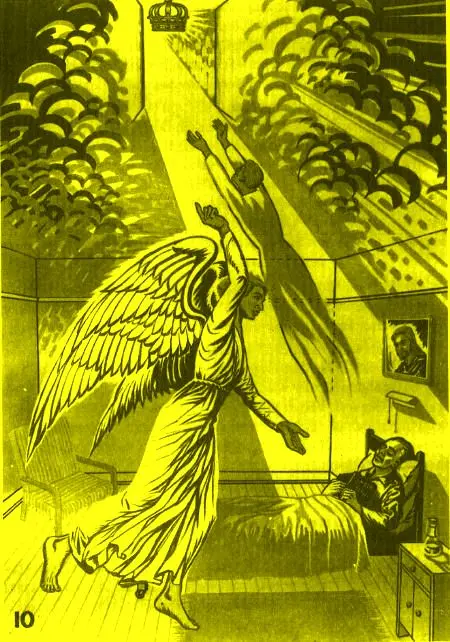
“Premlal,” he said, “what do you think happens when a follower of Jesus dies?”
Premlal didn’t speak—but he listened with his whole being.
“Those who believe in Jesus have eternal life. Death is not the end—it’s the doorway to the other side. God sends His angels to carry His child home. And when that child stands before God, they will not be afraid—for Jesus has already paid their debt. Their name is written in the Book of Life.”
The man stood slowly, folding the pictures with care.
“Think about these things, Premlal. Don’t rush. Let truth sink deep. And when you are ready—speak to Jesus.”
He placed a hand on the boy’s shoulder, smiled once more, and walked away.
Premlal’s Prayer
That night, as the city of Mumbai settled into quiet, Premlal sat beside his bed, heart heavy with truth and hope. He knelt, closed his eyes, and whispered:
“God, thank you for showing me my heart. I’m sorry for my sins. I am unclean. Please forgive me. I believe Jesus is your Son. I believe He died in my place and rose again. I want to follow Him. From today, I will worship only You. You are the true God. Please help me find others who love Jesus. I want to know You more. Thank You for hearing me.”
A divine peace—the kind he had never known before—settled over him.
From that moment on, Premlal was no longer the same. He had become… a new creation.
Dear friend, thank you for reading this story. I pray that God will help you follow Jesus. In the meantime, read Dr. Luke’s story about Jesus.
Wish to know more about Jesus? Feel free to chat.
Why not share this web page with a friend? Just ask them to scan this code with their phone’s camera!

Read or listen to eyewitness accounts of Jesus’ life written in an easy-to-read format! If you are new to these books, we suggest that you start with the Good News by John.

This work is licensed under a Attribution-NonCommercial-NoDerivatives 4.0 International License.
*The above material was adapted by Philip P. Eapen from a booklet that originated in France in 1732, was revised and re-written for African nations by Rev. J. R. Gschwend in 1929, and has subsequently been translated and printed under copyright in over 250 indigenous languages by All Nations Gospel Publishers who are distributing it today in 127 countries.
© Copyright: ALL NATIONS GOSPEL PUBLISHERS, P. O. Box 2191, PRETORIA, 0001, SOUTH AFRICA REG. No. 61/01798/08, ISBN 0-908412-16-9
